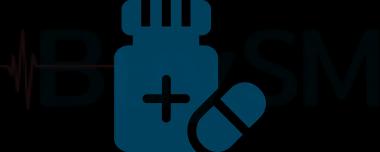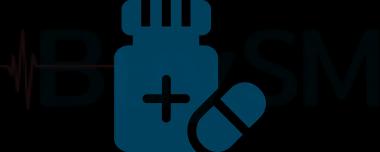

Rolimus 10 mg Tablet | 10 Tablets in 1 Strip
- Manufacturer/Marketed By
Cipla Ltd
- Active Pharmaceutical Ingredient
Everolimus 10 mg
(Inclusive of all taxes)
Introduction of Rolimus 10 mg Tablet
Rolimus 10 mg Tablet is an anticancer medicine used for the treatment of various cancers such as the pancreas, stomach, intestines, or lungs that have spread or progressed and that cannot be treated with surgery. Rolimus 10 mg Tablet is used for the treatment of breast cancer in postmenopausal women with advanced hormone receptor-positive, and HER2-negative. It is also used for the treatment of adult patients with advanced kidney cancer after failure of treatment with sunitinib or sorafenib. Rolimus 10 mg Tablet is also used to treat kidney tumours in people with tuberous sclerosis complex (a genetic condition that causes tumours to grow in many organs including the brain spinal cord, nerves, eyes, lungs, heart, kidneys, and skin). Rolimus 10 mg is used to treat subependymal giant cell astrocytoma (a type of brain tumour) in adults and children 1 year of age and older who have tuberous sclerosis complex. It may be used with other medications to prevent transplant rejection (attack of the transplanted organ by the immune system of the person who received the organ) in certain adults who have received kidney transplants.
Rolimus 10 mg Tablet may cause some common adverse effects including mouth ulcers, low white blood cell count, infections, low platelet count, nail and skin colour change, fatigue, nausea and vomiting, diarrhoea, decreased appetite, taste change, elevated blood sugar levels and cholesterol. If any of the side effects persist or bother you, consult the doctor immediately. Inform the doctor immediately if you experience any allergic reactions (rash, shortness of breath, coughing, swelling, etc). Always seek medical advice if you have increased thirst or increased frequency of urination, or suffer from shortness of breath, cough or fever.
Before taking Rolimus 10 mg, inform the doctor about your past and present medical complications such as if you have any kidney or liver disease, diabetes, high cholesterol levels in the blood, any infections, hepatitis-B infection or any other medical conditions and if you are using any prescription medicines and non-prescription medicines, herbal, vitamins, etc. Many other medicines will interact with this medicine, so please make sure inform to the doctor. This medicine is not recommended for use in pregnant women and breastfeeding women, it may cause birth defects. Rolimus 10 mg may affect fertility. However, it is important to use birth control to prevent pregnancy because Rolimus 10 mg can harm an unborn baby. You should also avoid having live or live-attenuated vaccines while receiving this Rolimus 10 mg. These include herpes zoster (Zostavax) for shingles prevention, oral polio, measles, nasal flu vaccine, rotavirus and yellow fever vaccines.
Rolimus 10 mg Tablet can be taken by mouth with or without food. Swallow the whole tablet with a glass of water. Do not crush, break, or chew the tablets. Take your dose around the same time every day. It is important to make sure you are taking the correct amount of medication every time. Before every dose, check that what you are taking matches what you have been prescribed. If you miss a dose and it has been less than 6 hours since your regular dose time, take it as soon as you remember. If it has been more than 6 hours, skip the dose. Do not take 2 doses at once to make up for a missed dose.
Uses of Rolimus 10 mg Tablet
Breast cancer: Rolimus 10 mg Tablet is used for the treatment of postmenopausal women with advanced hormone receptor-positive, HER2-negative breast cancer in combination with exemestane, after the failure of treatment with letrozole or anastrozole. The symptoms include nipple changes, such as inversion, discharge, or a scaly or itchy rash, pain or tenderness in the breast, changes in breast size or shape, unexplained weight loss or loss of appetite, Fatigue or weakness, etc.
Neuroendocrine Tumors (NET): Rolimus 10 mg Tablet may also use to prevent neuroendocrine tumours (Neuroendocrine tumours are rare and can occur anywhere in the body. Most neuroendocrine tumours occur in the lungs, appendix, small intestine, rectum and pancreas.
Kidney cancer: Rolimus 10 mg Tablet is used for the treatment of adult patients with kidney cancer after the failure of treatment with sunitinib or sorafenib. The symptoms include high blood pressure, swelling in the ankles or legs, fatigue, weight loss and loss of appetite low red blood cell count, etc.
Tuberous Sclerosis Complex (Genetic Disease)(TSC)-Associated Renal Angiomyolipoma: Rolimus 10 mg Tablet is used for the treatment of adult patients with renal angiomyolipoma and TSC, not requiring immediate surgery.
Tuberous Sclerosis Complex (TSC)-Associated Subependymal Giant Cell Astrocytoma (SEGA) (Brain Tumour): Rolimus 10 mg Tablet is used in adult and pediatric patients aged 1 year and older with TSC for the treatment of SEGA that requires therapeutic intervention but cannot be curatively resected.
Benefits of Rolimus 10 mg Tablet
Rolimus 10 mg Tablet is indicated to patients dealing with various cancers such as breast cancer, pancreatic cancer, lung cancer, kidney cancer and stomach/ intestinal cancer. Cancer of this type tends to spread quickly in other parts of the body. Rolimus 10 mg Tablet travels through the bloodstream and effectively destroys cancerous cells and other parts of the body. It works by decreasing the activity of the immune system of the body and prevents the rejection of the transplanted organ. Rolimus 10 mg works by stopping the action of an abnormal protein that causes the multiplication of cancerous cells. In this way, it stops the spread of cancerous cells. Besides this, it is also effective in people with genetic disorders to treat some types of tumours in the brain or kidneys.
Side Effects of Rolimus 10 mg Tablet
Rolimus 10 mg Tablet may cause some side effects. If you experience any of these side effects contact your doctor as soon as possible. Your doctor may be able to suggest ways to manage or reduce the severity of these side effects.
Most Common Side Effects of Rolimus 10 mg Tablet
- Infection
- Urinary issues
- Hypertension, rise in cholesterol or triglycerides
- Stomach pain, nausea, diarrhoea and/or constipation
- Headache
- Swelling in your legs or feet
Common Side Effects of Rolimus 10 mg Tablet
- Swelling in legs and feet
- Blood in stools and urine
- Burning sensation during urination
- Mouth sores
- Headache
- Tiredness
- Nausea
How to Use Rolimus 10 mg Tablet?
Rolimus 10 mg Tablet can be taken by mouth with or without food. Swallow the whole tablet with a glass of water. Do not crush, break, or chew the tablets. Take your dose around the same time every day. It is important to make sure you are taking the correct amount of medication every time. Before every dose, check that what you are taking matches what you have been prescribed. If you miss a dose and it has been less than 6 hours since your regular dose time, take it as soon as you remember. If it has been more than 6 hours, skip the dose. Do not take 2 doses at once to make up for a missed dose.
How Rolimus 10 mg Tablet Works?
Rolimus 10 mg Tablet contains 'Everolimus' which belongs to the group of medicines known as 'kinase inhibitors. It works by decreasing the activity of the immune system of the body and preventing the rejection of the transplanted organ. It works by stopping the action of an abnormal protein that causes the multiplication of cancerous cells. In this way, it stops the spread of cancerous cells.
Safety Advices Rolimus 10 mg Tablet
Breastfeeding
Unsafe
It is not recommended to breastfeed while taking Rolimus 10 mg. Rolimus 10 mg Tablet may pass into breast milk and harm the infant. If you are breastfeeding and taking Rolimus 10 mg, it is important to talk to your doctor about the possible risks and benefits of continuing to breastfeed. Your doctor will be able to help you make the best decision for you and your baby's health.
Alcohol
Unsafe
It is generally not recommended to drink alcohol while taking Rolimus 10 mg Tablet. It may increase the risk of liver damage. it is best to avoid alcohol or limit your alcohol consumption while taking any medication.
Pregnancy
Unsafe
Use of Rolimus 10 mg Tablet may be unsafe during pregnancy as animal studies indicate that it may harm the developing foetus. However, if you are pregnant or planning to become pregnant, it is important to talk to your doctor about the potential risks and benefits of taking Rolimus 10 mg during pregnancy. Your doctor will be able to help you make the best decision for you and your baby's health.
Liver
Use with Caution
Rolimus 10 mg Tablet should be used with caution in patients with liver disease. It is important that patients with liver disease closely monitor liver function while taking Rolimus 10 mg and report any unusual symptoms or changes in liver function to their doctor. The dose of Rolimus 10 mg may need to be adjusted in patients with liver disease.
Driving
Unsafe
Rolimus 10 mg Tablet may cause dizziness, fatigue, and difficulty concentrating and coordinating, which may affect your ability to drive a vehicle safely. It is important to follow your doctor's instructions and take necessary precautions such as avoiding driving a vehicle or operating heavy machinery if you suffer from the side effects of this Rolimus 10 mg.
Kidney
Safe
Rolimus 10 mg Tablet is safe to use in patients with kidney disease. No dose adjustment of Rolimus 10 mg is recommended.
Similar Medicines
Anti-Cancer
Why customers like you choose BuySM.com?

Genuine Medicine
We maintain complete transparency in our sourcing and supply chain processes.

Secure Payments
This ensures that all data exchanged between your browser and our server remains confidential and secure

Fast Delivery
Stay informed about the status of your order with our real-time tracking feature.

Best Price & Offer
Enjoy even greater savings by taking advantage of our bundle offers.

5,000
Total Customers

15,000+
Products Sold Out

10,000+
Orders Delivered

10+
Cities



